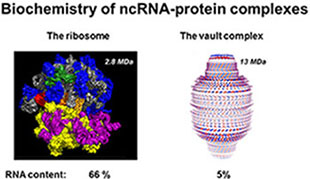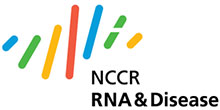Welcome
The central dogma of molecular biology predicts, that the flow of genetic information proceeds from the DNA level to RNA and finally to proteins (F. Crick, 1958). Today, in the so called ‘post-genomic era’, we realize that this assumption is true for only a minor population of genes, namely the protein encoding genes. However, especially in higher multicellular eukaryal species (e.g. human, mouse), only about 1.4% of the genome encodes protein genes while 50 to 100% of the genome is actually transcribed but never translated. This functionally poorly characterized pool of transcripts is commonly referred to as non-protein-coding RNAs (ncRNAs).
In the recent past, the importance of the surprisingly diverse class of ncRNAs has been widely recognized. They play key roles in a variety of fundamental biological processes in all three domains of life. The functional contribution of ncRNAs to biology is manifold and includes DNA replication and chromosome maintenance, regulation of transcription and translation, RNA processing, protein synthesis and stability of mRNAs. Many ncRNAs have been discovered fortuitously, suggesting they merely represent the tip of the iceberg.
In our group we focus on the functional characterization of ncRNAs in large cellular RNA/protein complexes, such as the ribosome or the vault particle. We approach these aims by applying biochemical, genomic, genetic and bioinformatic tools in model organisms representing all three domains of life (archaea, bacteria and eukarya).
This group is part of the Swiss National Focus in Research on RNA & Disease jointly hosted by the University of Bern and the ETH Zürich.


